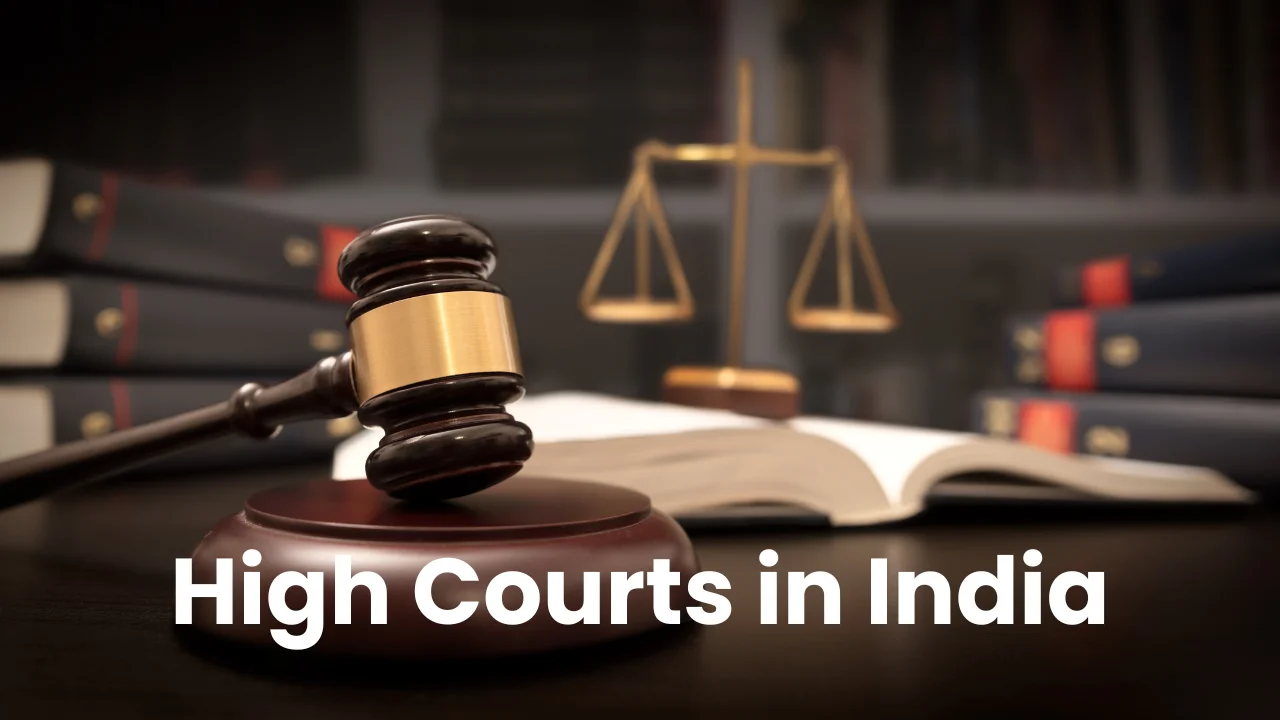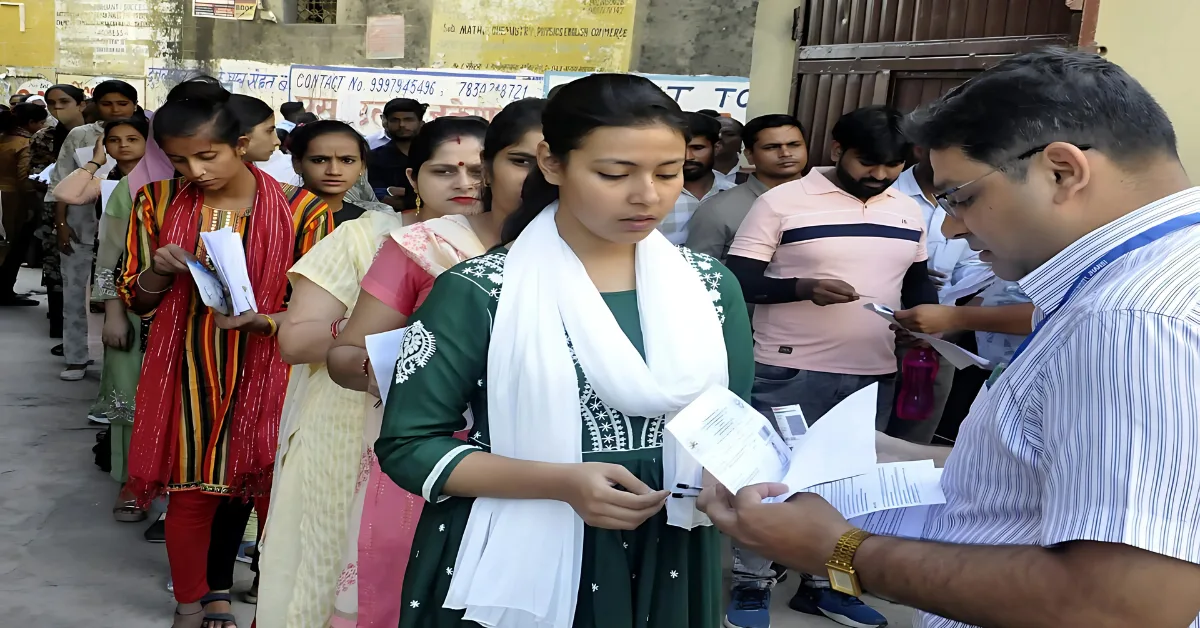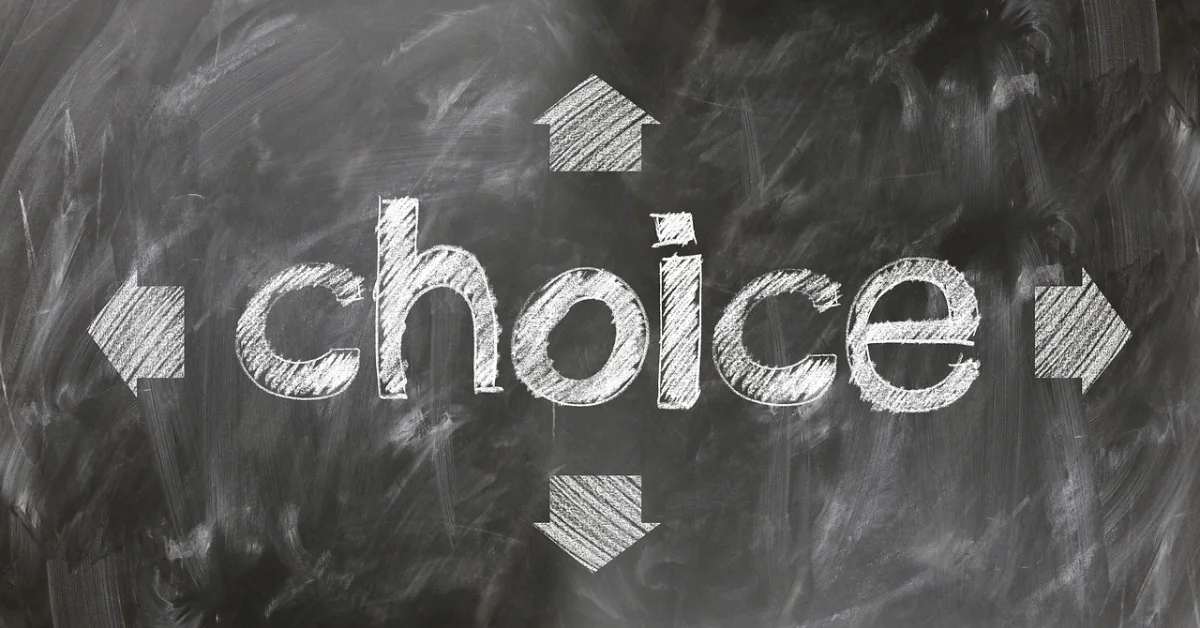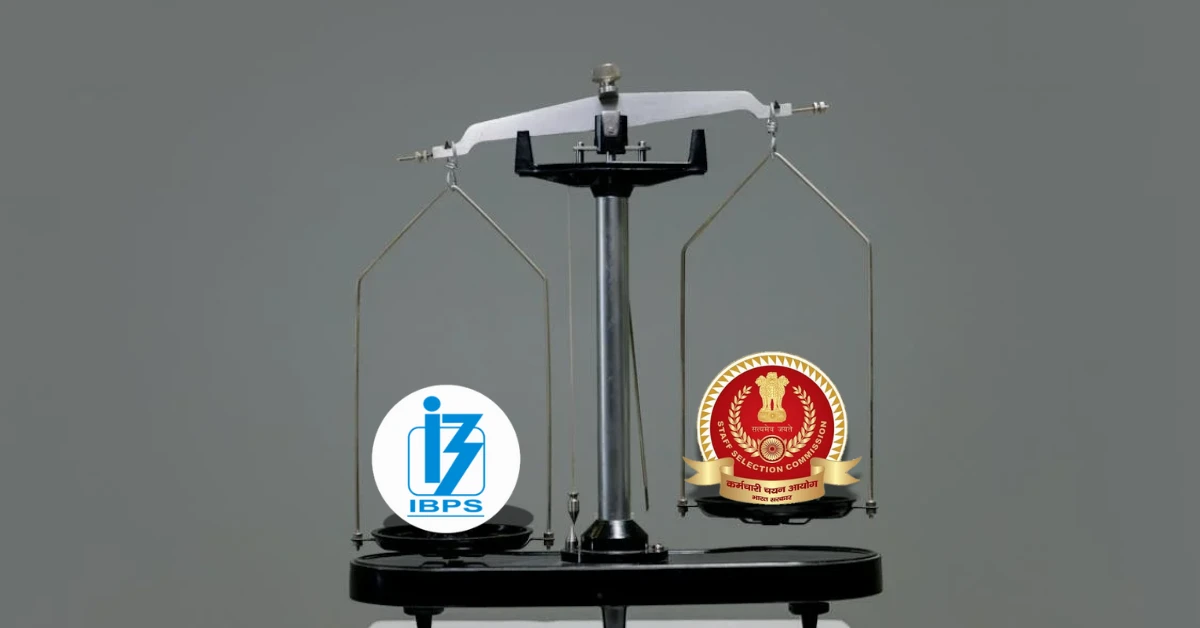High Courts in India 2024
High Courts in India are the highest judicial bodies in their respective states and union territories. They play a crucial role in the Indian judicial system, ensuring justice and fairness at the state level. Here’s a comprehensive overview of these important institutions:
Structure and Composition
- Each state and some union territories have their own High Court. Currently, there are 25 High Courts in India.
- Each High Court is headed by a Chief Justice, appointed by the President of India.
- Other judges are appointed by the President in consultation with the Chief Justice of India and the Chief Justice of the concerned High Court.
- The number of judges in each High Court varies depending on the workload and size of the state.
Jurisdiction and Powers
- High Courts have two primary functions: appellate jurisdiction and original jurisdiction.
- Appellate jurisdiction: High Courts hear appeals from lower courts within their state or union territory. This includes civil and criminal cases.
- Original jurisdiction: High Courts can hear certain cases directly, such as:
- Matters related to the Constitution of India.
- Cases involving the Governor or the state government.
- Writs like Habeas Corpus and Certiorari to protect fundamental rights.
- High Courts also have supervisory power over lower courts within their jurisdiction. They can issue directions and guidelines to ensure that lower courts follow proper procedures and principles.
Importance of High Courts
- Guardian of justice: High Courts protect the rights of citizens by ensuring fair trials and upholding the Constitution.
- Interpreter of law: High Courts interpret the law and guide lower courts on legal issues.
- Check on government: High Courts can hold government authorities accountable for their actions and ensure they comply with the law.
- Promoters of social justice: High Courts play a role in promoting social justice by addressing issues like discrimination and inequality.
Challenges and Concerns
- Backlog of cases: High Courts face a huge backlog of cases, leading to delays in justice.
- Vacancies in judgeships: A shortage of judges can further contribute to delays and affect the efficiency of the courts.
- Access to justice: Ensuring access to justice, particularly for the underprivileged, remains a challenge.
Despite the challenges, High Courts play a vital role in upholding the principles of justice and fairness in India. Their continued commitment to these values is crucial for ensuring a strong and vibrant judicial system.
List of High Courts in India, their Location, Seat, Bench & Jurisdiction
| S.No. | Year | Name | Territorial Jurisdiction | Seat & Bench |
| 1 | 1862 | Bombay | Maharashtra Dadra & Nagar Haveli and Daman Diu Goa | Seat: Mumbai Bench: Panaji, Aurangabad, and Nagpur |
| 2 | 1862 | Kolkata | West Bengal Andaman & Nicobar Islands | Seat: Kolkata Bench: Port Blair |
| 3 | 1862 | Madras | Tamil Nadu Pondicherry | Seat: Chennai Bench: Madurai |
| 4 | 1866 | Allahabad | Uttar Pradesh | Seat: Allahabad Bench: Lucknow |
| 5 | 1884 | Karnataka | Karnataka | Seat: Bengaluru Bench: Dharwad and Gulbarga |
| 6 | 1916 | Patna | Bihar | Patna |
| 7 | 1948 | Guwahati | Assam Nagaland Mizoram Arunachal Pradesh | Seat: Guwahati Bench: Kohima, Aizawl, and Itanagar |
| 8 | 1949 | Odisha | Odisha | Cuttack |
| 9 | 1949 | Rajasthan | Rajasthan | Seat: Jodhpur Bench: Jaipur |
| 10 | 1956 | Madhya Pradesh | Madhya Pradesh | Seat: Jabalpur Bench: Gwalior and Indore |
| 11 | 1958 | Kerala | Kerala Lakshadweep | Ernakulam |
| 12 | 1960 | Gujarat | Gujarat | Ahmedabad |
| 13 | 1966 | Delhi | Delhi | Delhi |
| 14 | 1971 | Himachal Pradesh | Himachal Pradesh | Shimla |
| 15 | 1975 | Punjab & Haryana | Punjab Haryana Chandigarh | Chandigarh |
| 16 | 1975 | Sikkim | Sikkim | Gangtok |
| 17 | 2000 | Chattisgarh | Chattisgarh | Bilaspur |
| 18 | 2000 | Uttarakhand | Uttarakhand | Nainital |
| 19 | 2000 | Jharkhand | Jharkhand | Ranchi |
| 20 | 2013 | Tripura | Tripura | Agartala |
| 21 | 2013 | Manipur | Manipur | Imphal |
| 22 | 2013 | Meghalaya | Meghalaya | Shillong |
| 23 | 2019 | Telangana | Telangana | Hyderabad |
| 24 | 2019 | Andhra Pradesh | Andhra Pradesh | Amravati |
| 25 | 2019 | Jammu & Kashmir and Ladakh | Jammu and Kashmir Ladakh | – |
High Courts in India Map Location
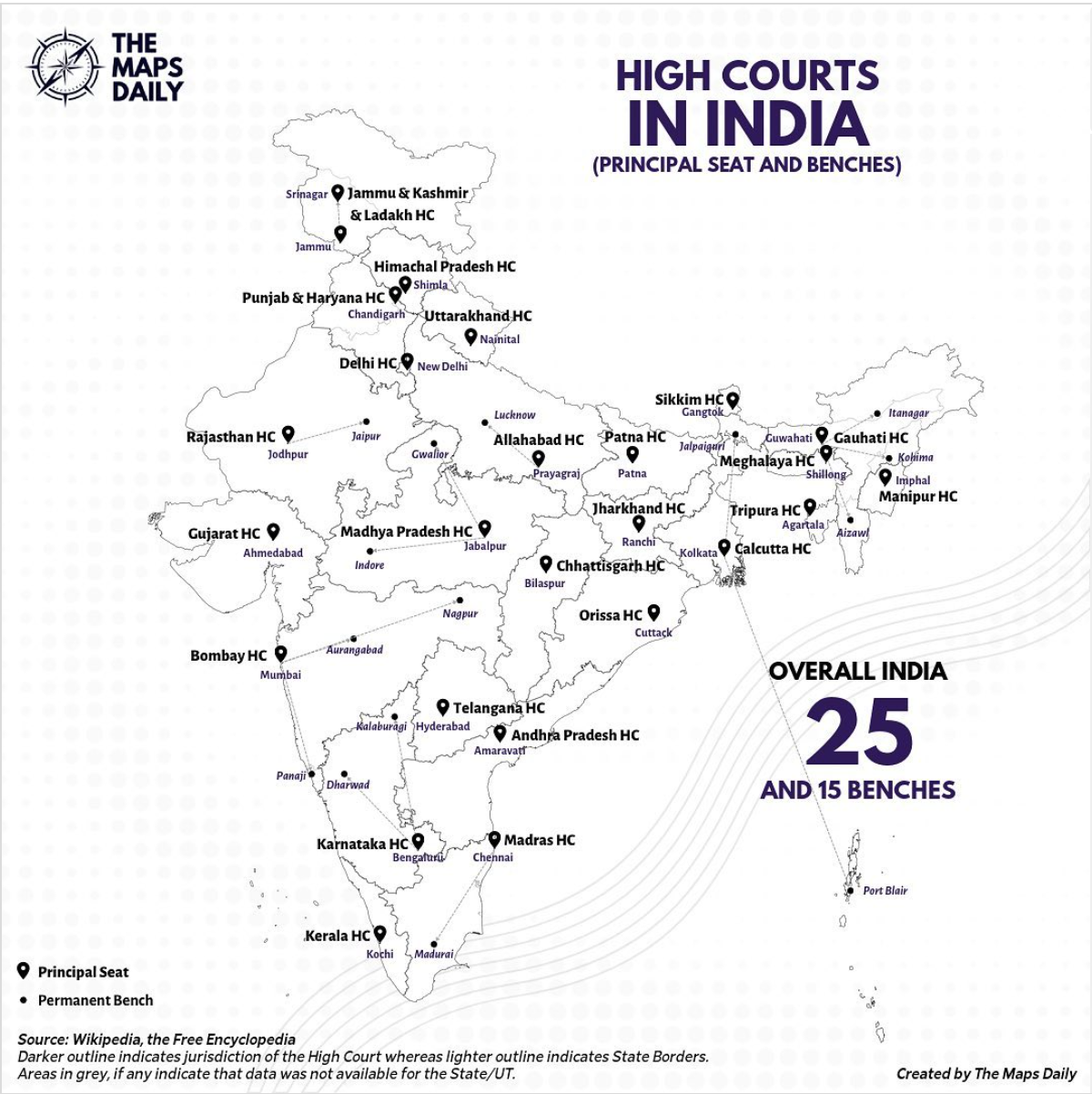
Constitutional Provisions Related to High Courts
The Indian Constitution, in Part VI, specifically Chapters V and VI, lays out the framework for High Courts, emphasizing their vital role in the judicial system. Here’s a detailed overview of the key constitutional provisions:
Establishment and Jurisdiction
- Article 214: Mandates the establishment of a High Court for each state.
- Article 215: Empowers Parliament to establish a common High Court for two or more states, or to extend the jurisdiction of a High Court to a union territory.
- Article 226: Grants High Courts the power to issue writs for enforcement of fundamental rights (Habeas Corpus, Mandamus, Certiorari, Prohibition, and Quo Warranto).
- Article 227: Empowers High Courts to supervise subordinate courts through writs like certiorari and mandamus.
- Article 245: Defines the territorial jurisdiction of each High Court within its state or union territory.
Composition and Appointment
- Article 217: Defines the structure of High Courts, with a Chief Justice and other judges appointed by the President.
- Article 220: Specifies the qualifications for a judgeship in a High Court (age, judicial experience, etc.).
- Article 219: Defines the removal process for judges, only through a Parliament address supported by a majority of both houses.
Powers and Functions
- Article 222: Grants High Courts original jurisdiction in specific cases, such as election disputes, matters concerning admiralty and maritime jurisdiction, and cases involving revenue of the Government of India.
- Article 223: Empowers High Courts to hear appeals from subordinate courts within their jurisdiction, both civil and criminal.
- Article 228: Allows High Courts to transfer cases from subordinate courts within their jurisdiction.
- Article 229: Grants High Courts power to punish for contempt of court.
Other Important Provisions
- Article 141: Makes the Supreme Court the highest court in the land, binding all courts below it, including High Courts.
- Article 145: Empowers the President to consult the Chief Justice of India in appointing Chief Justices of High Courts.
- Article 246: Defines the distribution of legislative powers between the Union and the States, impacting the jurisdiction of High Courts in their respective states.
These are some of the key constitutional provisions relating to High Courts in India. They define their establishment, jurisdiction, composition, powers, and functions, making them crucial pillars of the Indian judicial system.
Important Terms Related to High Courts
Here are some of the most important terms related to High Courts in India, along with brief explanations:
Judicial Hierarchy
- Supreme Court: The highest court in India, with authority over all High Courts and subordinate courts.
- High Court: The highest court in a state or union territory, with appellate and original jurisdiction over subordinate courts within its jurisdiction.
- District Court: The primary court of a district, dealing with most civil and criminal cases.
- Subordinate Courts: Lower courts within a state, including taluka courts, munsiff courts, and metropolitan magistrates’ courts.
Jurisdiction
- Appellate Jurisdiction: The power of a court to hear appeals from decisions made by lower courts.
- Original Jurisdiction: The power of a court to hear a case at its initial stage, before any other court has considered it.
- Concurrent Jurisdiction: The power of both the High Court and subordinate courts to hear a particular type of case.
- Exclusive Jurisdiction: The power of only the High Court to hear a particular type of case.
Writs
- Habeas Corpus: A writ requiring a person holding another in custody to produce the person before the court and show cause for the detention.
- Mandamus: A writ commanding a public official or lower court to perform a specific duty.
- Certiorari: A writ directing a lower court to send the records of a case to the High Court for review.
- Prohibition: A writ forbidding a lower court from proceeding with a case already before it.
- Quo Warranto: A writ questioning the right of a person to hold a public office.
Other Important Terms
- Chief Justice: The head of a High Court.
- Judge: A judicial officer appointed to a High Court.
- Advocate General: The chief legal advisor to the State Government.
- Bar Council: The regulatory body for lawyers practicing in a High Court.
- Circuit Bench: A temporary bench of judges who sit outside the main seat of the High Court to hear cases in remote areas.
- Full Bench: A bench consisting of all the judges of a High Court, typically convened for especially important cases.
- SSC CGL Exam Centers 2025 for Tier 1 and Tier 2, Choose Preferences
- SSC CGL Vs CAT, Which is the Better Career Option?
- SSC Typing Test – How to Attempt SSC Typing Test, Check Strategy
- SSC CGL vs IBPS PO Complete Comparison, Which is Better?
- Active Passive Voice for SSC Exams, Practice Questions with Solutions
- SSC Registration Number, Know How to Get Your Registration Number

Hello, I’m Aditi, the creative mind behind the words at Oliveboard. As a content writer specializing in state-level exams, my mission is to unravel the complexities of exam information, ensuring aspiring candidates find clarity and confidence. Having walked the path of an aspirant myself, I bring a unique perspective to my work, crafting accessible content on Exam Notifications, Admit Cards, and Results.
At Oliveboard, I play a crucial role in empowering candidates throughout their exam journey. My dedication lies in making the seemingly daunting process not only understandable but also rewarding. Join me as I break down barriers in exam preparation, providing timely insights and valuable resources. Let’s navigate the path to success together, one well-informed step at a time.
